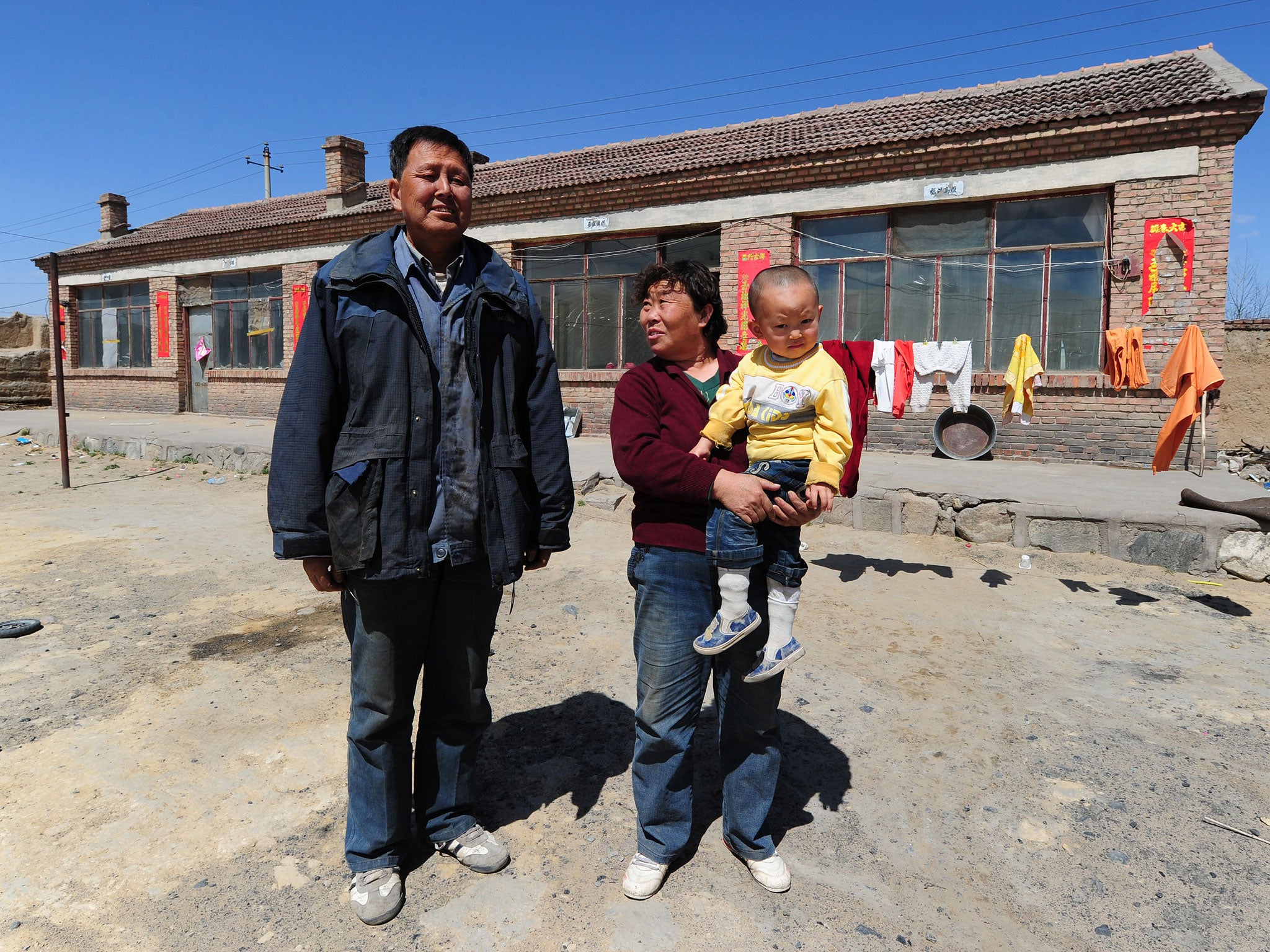The Independent's journalism is supported by our readers. When you purchase through links on our site, we may earn commission.
China says it is improving the lives of ethnic minorities in Inner Mongolia. Don't be fooled
Coal mining within the region has led to a major economic revival. But how has this prosperity benefited the nomads or the environment?

Isobel Yeung’s recent Independent Voices piece asks us to keep an open mind about how China treats its ethnic minorities (who account for around 8 per cent of its population). Though she admits that the government has pursued “repressive policies” in Tibet and Xinjiang over the last decade, she argues that the situation of the nomadic minorities in Inner Mongolia (an autonomous region of China) is entirely different. She proposes that the reason they have had to abandon raising livestock and move into cities is because the government wished to improve their living conditions. Media reports that this is due to the coal-mining practices of the Han (the ethnic majority in China) who are intent on destroying the nomads’ traditional culture are an “over-simplification of Inner Mongolia's current economical, cultural, and environmental issues”.
A version of this argument is frequently advanced by the Chinese government to explain its policies in Tibet and Xinjiang, namely that it is seeking to modernise and develop a ‘backward’ region. Whilst there has been undoubtedly been considerable investment in these regions, and the standard of living has improved for many, there have also been systematic inequalities in terms of who benefits. In Xinjiang the vast network of state-owned farms and factories employs virtually no Uyghurs despite the high levels of unemployment in the region. In Tibet, many rural communities (most of them Tibetan) have failed to benefit from the prosperity that has resulted from the massive influx of investment that has accompanied the millions of people the government has encouraged to move to the province.
However, it would be unfair to conclude that the same must automatically be true for the ethnic minorities in Inner Mongolia. There’s no doubt that coal mining within the region has led to a major economic revival. But how has this prosperity benefitted the nomads? The government claims to have resettled more than 500,000 nomads in cities and presents this as a move ‘into modernity’. The problem is that the nomads have had no say in the matter. The destruction of the grasslands where they grazed their animals has given them no choice but to move into government housing in the cities. Though it has been suggested that the nomads themselves are to blame for the loss of the grasslands, mining is the principal cause. Coal requires a lot of water to generate steam and remove impurities, which in Inner Mongolia has been taken from underground water systems, depleting the water table and reducing the water available for agriculture and livestock. To the extent that overgrazing has been a factor it has been mainly due to large dairy corporations rather than herders.
It’s also worth questioning the extent to which the government’s policies truly constitute economic progress. Whilst China’s economic growth has been impressive, not just in Inner Mongolia, but throughout the country, it has come at great environmental cost that will negatively impact the lives of everyone in the region for generations, not just in ecological terms but also economic.
Although the government has provided housing and welfare benefits for the nomads, the fact remains that most have lost their sole means of supporting themselves and their families. Many struggle to find another job: mine workers are mostly hired from other provinces, and many Mongolian nomads don’t speak good enough Mandarin to find a job in the cities. Rather than improving their standards of living, forced resettlement has diminished their life chances.
The loss of their grazing lands is as much a cultural blow as it is an economic one, given the centrality of landscape and livestock to their cultures. To argue that the nomads need to live a ‘modern’ life is tantamount to saying that that their cultures and traditions aren’t important. The disregard for nomadic cultures in Inner Mongolia is sadly typical of the way in which non-Han cultures are usually represented in China, namely as one dimensional singing, dancing figures in colourful ‘ethnic’ costumes. To the extent that their cultures are seen to have value, it is in such caricatures intended for the enjoyment of tourists. The bitter irony here is that this is taking place at the same time that the roots of these cultures are being destroyed.
Though no culture can remain static, there are many ways for cultures and traditional practices to adapt to changing circumstances. For example, there has been a scheme in Mongolia where herders developed a more collaborative way of raising livestock that has had good results. If the real aim of the government’s policies in Inner Mongolia was to improve the living conditions of its minorities, it could have been done so without fundamentally altering the basis on which they live. Ultimately, China’s policies in Inner Mongolian has resulted in both environmental and cultural destruction- if this counts as modernity, it only does so in the worst sense of the word.
Join our commenting forum
Join thought-provoking conversations, follow other Independent readers and see their replies
Comments
Bookmark popover
Removed from bookmarks